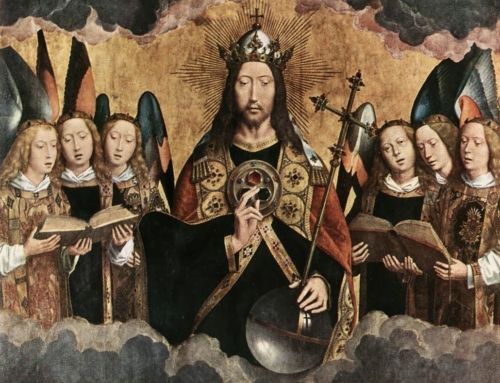Those who favor change in the Catholic Church keep calling for “more discussion” about the ordination of women. We have now had four popes definitively state that the order of priest is to be limited to men: Paul VI, John Paul II, Benedict XVI and Francis. Discussion has ended and it is decided.
However, proponents of women’s ordination continue to push for women to be ordained to the diaconate. Why? Any cursory examination of parish, diocesan and church life generally will reveal that women outnumber men in a whole range of offices in church life–and not just parish secretaries and church cleaners–but Directors of Finance, Directors of Faith Formation, School principals, Diocesan administrators, Chancellors, Canon Lawyers etc.
There are umpteen ways for women to serve if they are called to. But this is not primarily what the advocates of women’s ordination are interested in. They are driven, instead, by the distorted ideology of secular feminism–an ideology that does not so much demand equality, but uniformity. They want to be ordained because men “hold all the power in the church” and that’s unfair.
Allow me to puncture that balloon for a moment. Let’s begin with first principles. What is the diaconate? It is first, and foremost an order of humble service. It therefore seems contradictory for someone to request ordination to the diaconate so that they might share in the power of the clergy. Does a woman wish to be a humble servant in the church? She does not need to be a deacon to do so. Indeed, demanding diaconal ordination undermines the presumed desire and call to be a humble servant.
What is really happening is that those who demand ordination wish to be included in the ranks of the clergy, and let’s not be demure about this: the diaconate is merely a stepping stone to the eventual ordination of women to the presbyterate. Oh yes, they say with solemn (lying) faces “We are not interested in priestly ordination. Just the diaconate.” Uh huh. Anyone who has any wisdom at all knows that activists are never satisfied and to appease a bully is to embolden a bully.
The final argument against women’s ordination the diaconate is that it undermines radically the ministry of the laity. I find it striking that the very people in the church who rail most vociferously against clericalism are the very ones who turn around and demand women’s ordination. So clericalism is bad, bad, bad, but let’s create another category of clergy!
“But women will bring kindness, tenderness and intuitive spirituality to the clergy.” If anyone believes that, check out the not so sweet history of Episcopal and Anglican female bishops. The horror stories of their hectoring, bullying, strident and domineering leadership are manifold.
Nuff said.







Giving women the vote was going to clean up politics. It hasn’t yet. Just sayin’.
It never fails to amuse me how myopic those who keep calling for “more discussion” about the ordination of women are, especially clergymen who seem to have a “shades of grey” view of infallibility.
Which part of “I declare that the Church has no authority whatsoever to confer priestly ordination on women and that this judgment is to be *definitively* held by all the Church’s faithful.” (St JP2, Ordinatio sacerdotalis) do they not understand or think it’s subject to change?
Furthermore, why limit options and possibilities? It doesn’t mean women cannot lead, teach, or participate in church ministry. We have nuns and religious sisters who teach catechism, as well as laywomen who journey with other laywomen. Plus, the wives of married permanent deacons (& priests) can contribute to the choir, ministering to other women vis a vis navigating issues that females can uniquely relate to and connect to.
It would be better and logical to focus on nurturing these options, instead of wasting precious time and energy beating up dead horses.